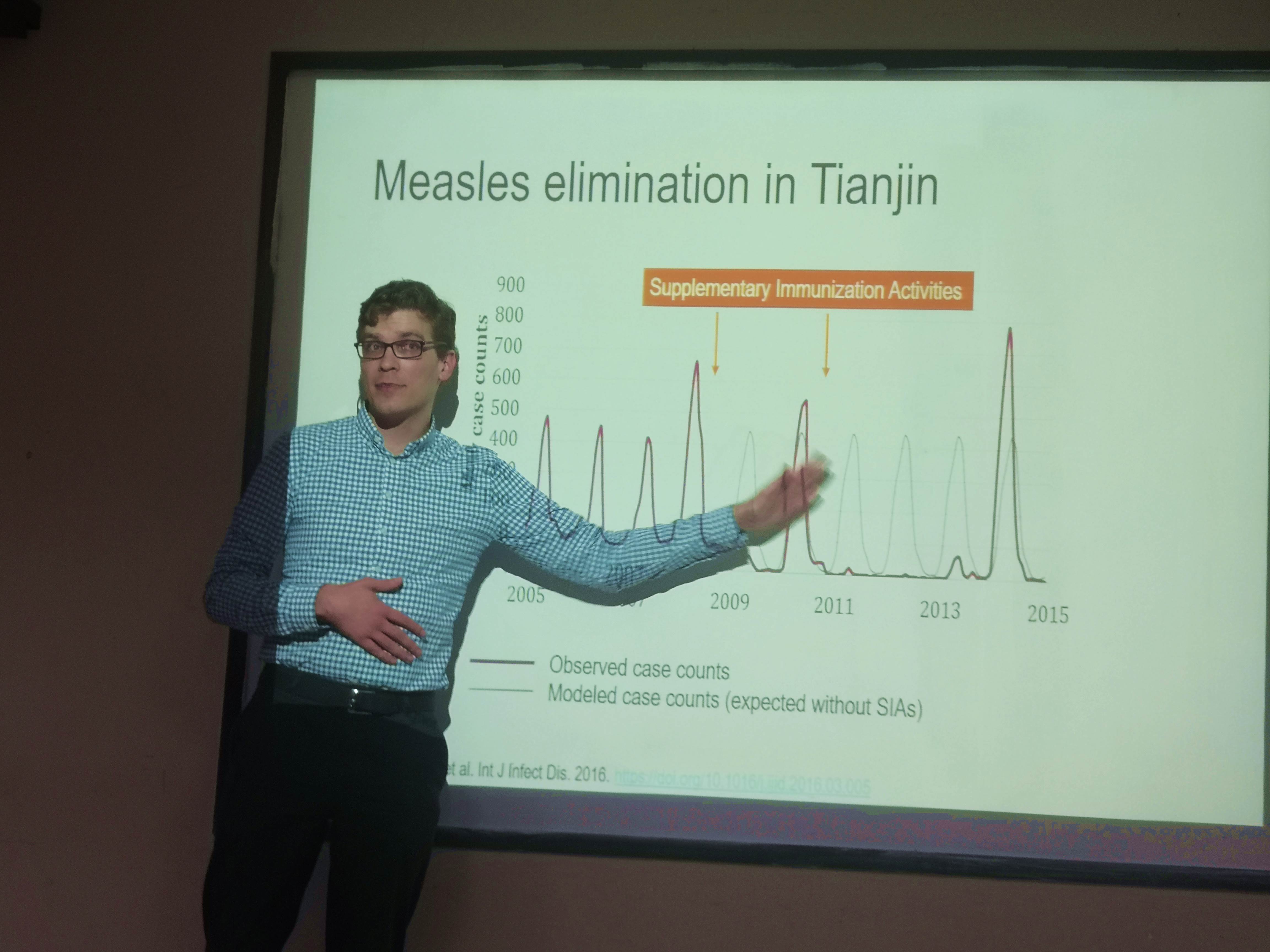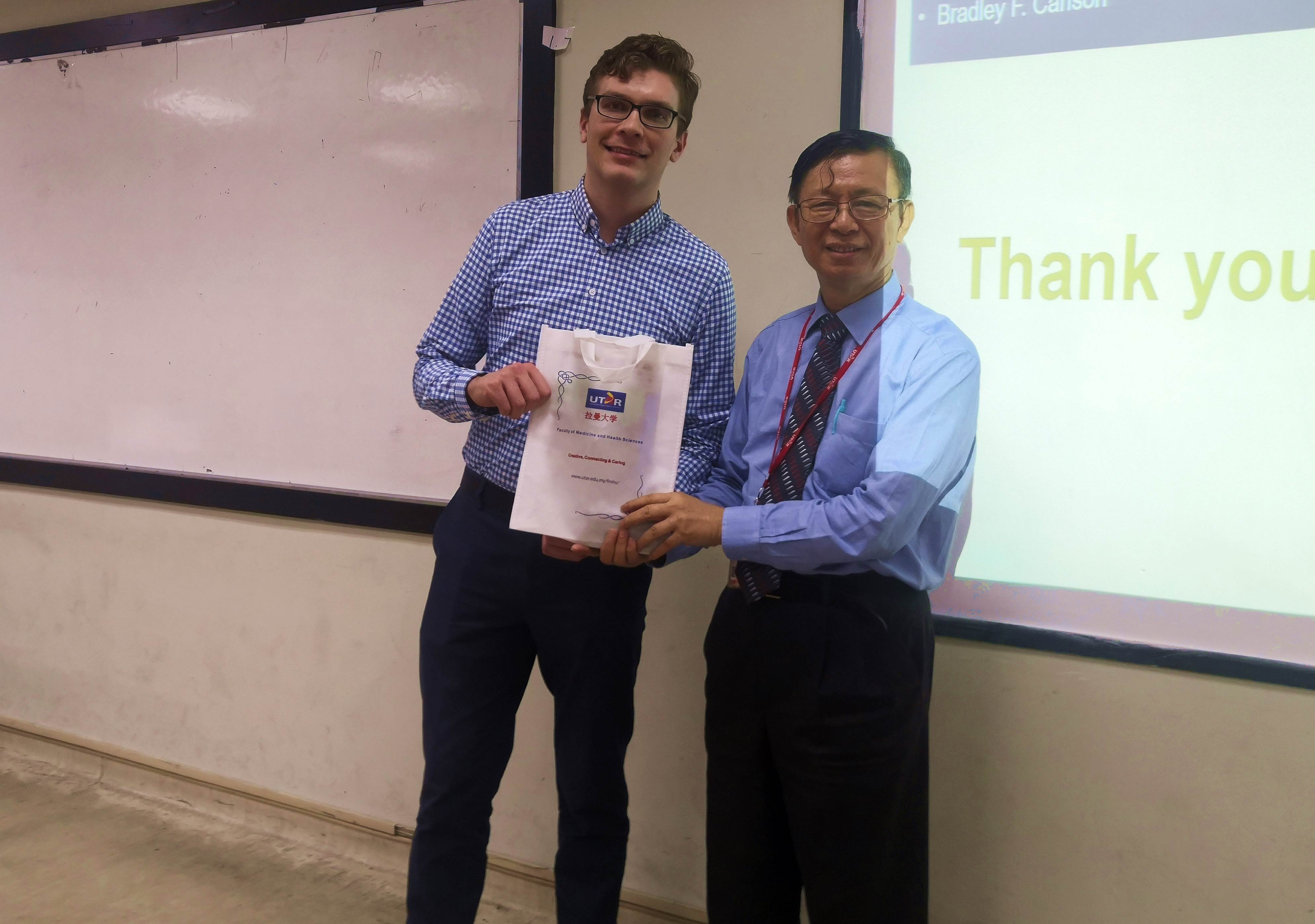
Measles is a serious disease that can cost millions of life from an outbreak
and it is easily spread through coughs and sneezes from the infected people.
Major epidemics usually occur approximately every two to three years and it
would bring an estimated 2.6 million deaths each year.
With the discovery of vaccine in 1963, the fatal counts had reduced
tremendously until today. However, the number is yet to be proud of as the
World Health Organization (WHO)
reported
that more than 140,000 people died from measles in 2018 with mostly children
under the age of five years old.
With vaccination for measles accessible worldwide, the next question in line
is how early should a person receive artificial immunity. To address this
issue University of Michigan School of Public Health Research Assistant
Professor Dr Abram Wagner shared his study conducted with 891 pairs of
infant and mother in Tianjin, China and 400 pairs in Chandigarh, India. Dr
Wagner was in UTAR Sungai Long Campus to share his study findings on the
degradation of maternal antibodies in infants on 21 February 2020.

Dr Wagner during the
talk
“An infant is not vaccinated at birth because they have maternal antibodies
to protect them,” said Dr Wagner. With different regulations in different
countries, the earliest measles vaccination given to an infant is at six
months old. The reason it is not given too early may also be due to the
possibility that babies may not respond well to the vaccinations.
The concern, however, was raised through the study conducted in Chandigarh
where less than half of the 400 pair of participants were still protected by
the maternal immunity after three months. In other words, there are a few
months where the infants will be left unprotected until they receive their
first vaccination.
As a way to overcome this, Dr Wagner suggested an early measles vaccination
at four months old, without replacing the vaccination that will be received
later on at nine or twelve months old. Despite being a possible solution,
the idea came with its own drawbacks. Adding another vaccination in the
existing schedule would mean additional cost, and it can be a significant
amount especially to developing countries.
“Perhaps the mother can be vaccinated more but we still do not know if it
will increase the immunity in the baby,” said Dr Wagner.

Faculty of Medicine and
Health Sciences Clinical Assoc Prof Dr Myo Oo (right) presenting a token of
appreciation to Dr Wagner
Wholly owned by UTAR Education Foundation Co. No. 578227-M LEGAL STATEMENT TERM OF USAGE PRIVACY NOTICE